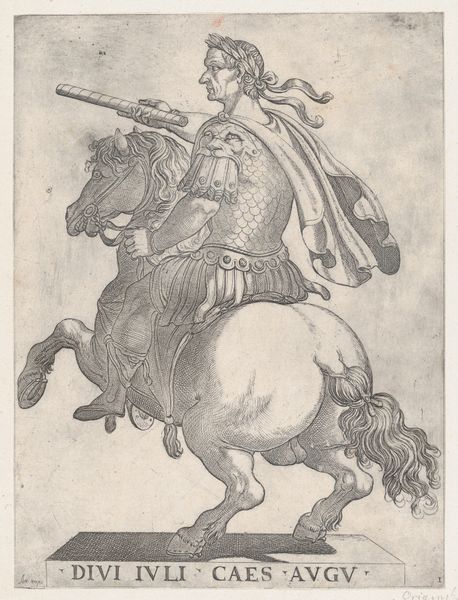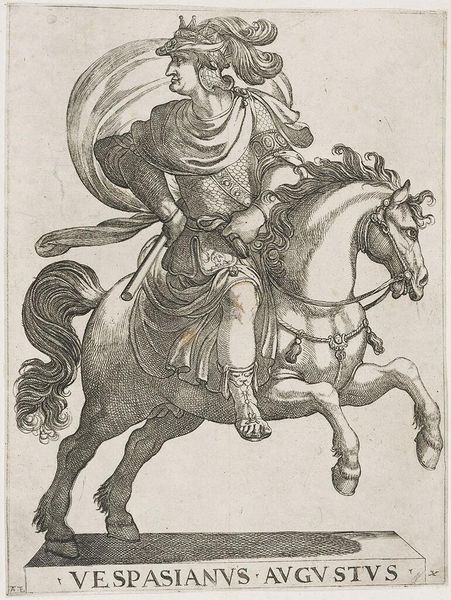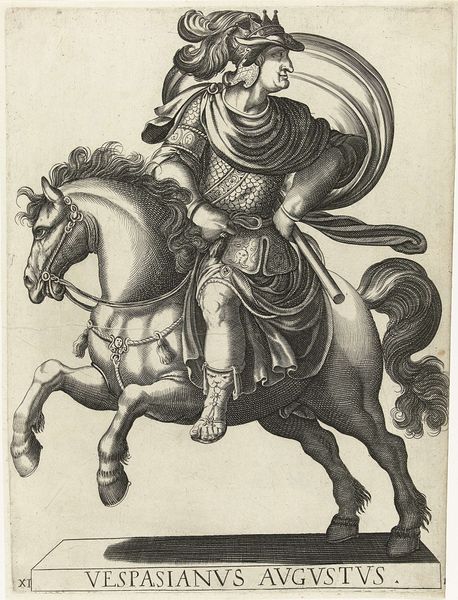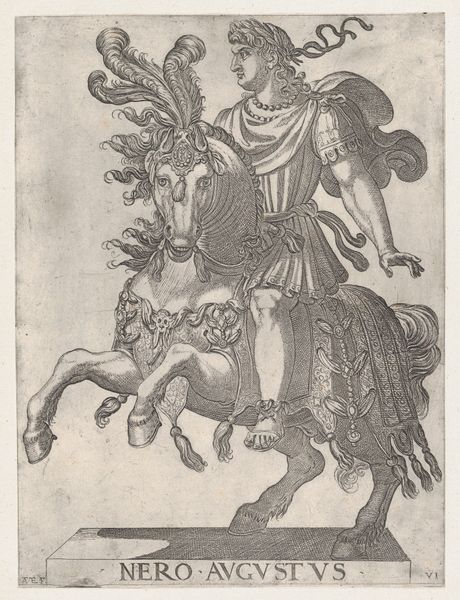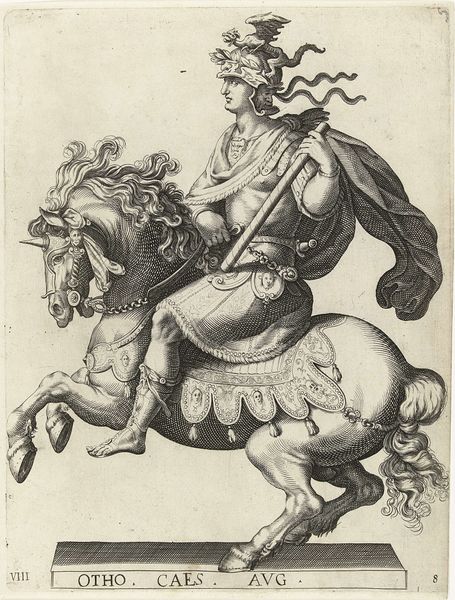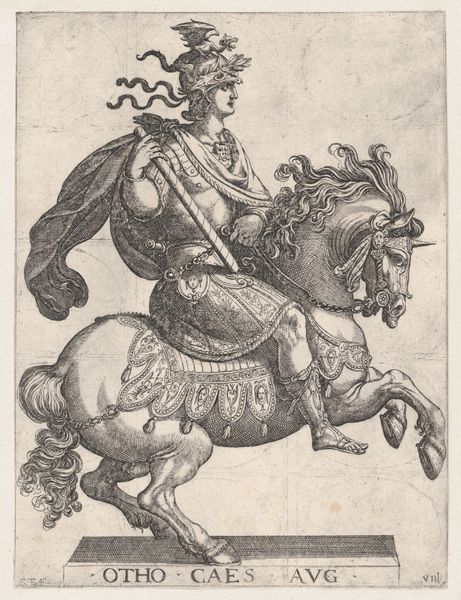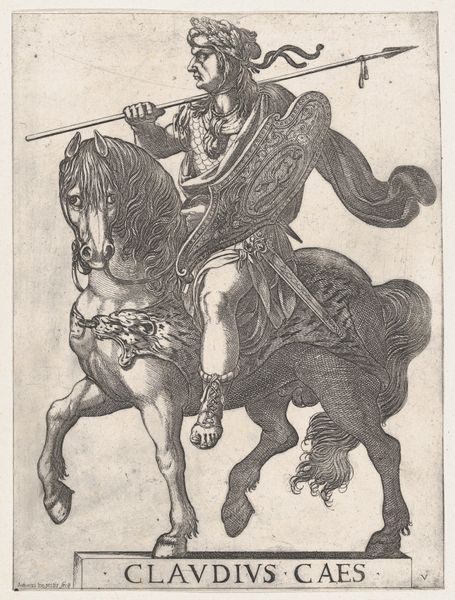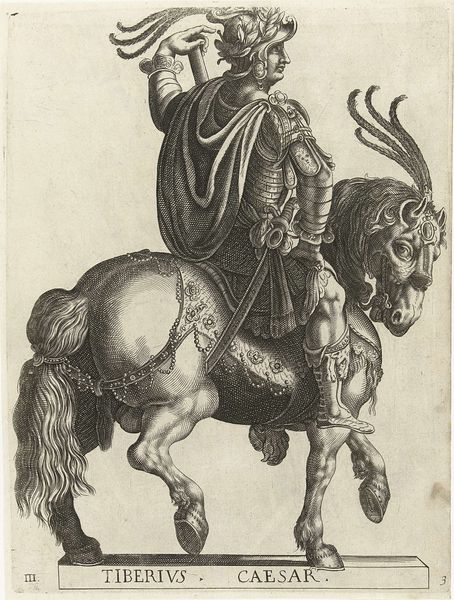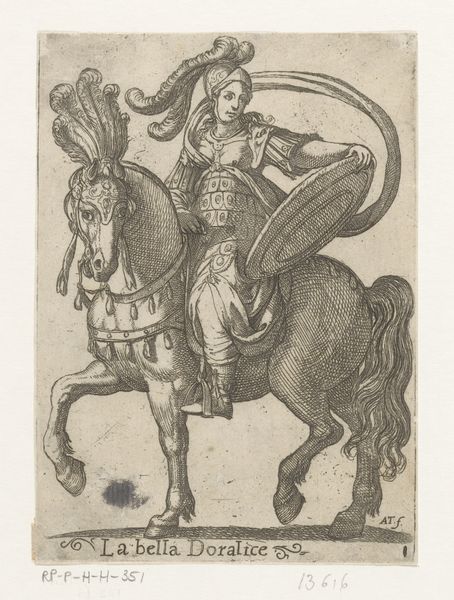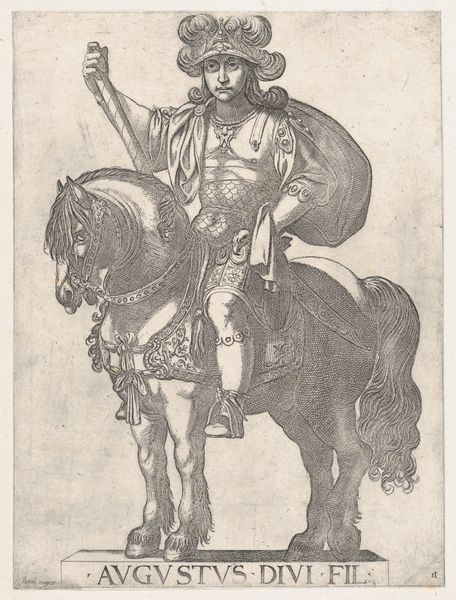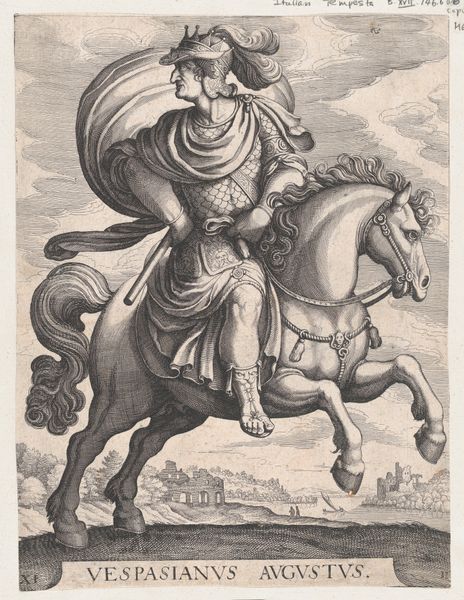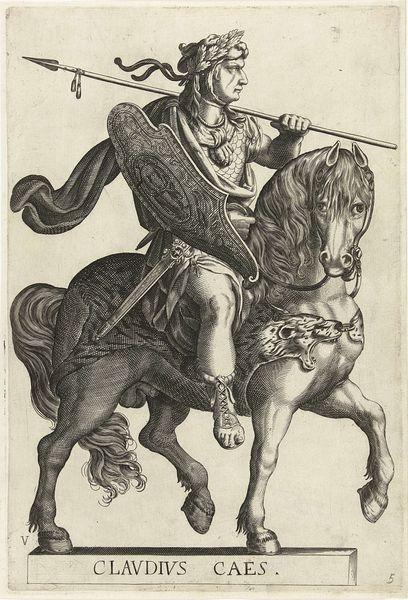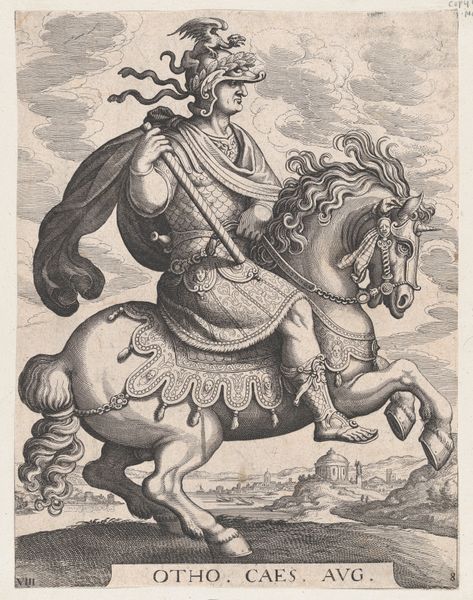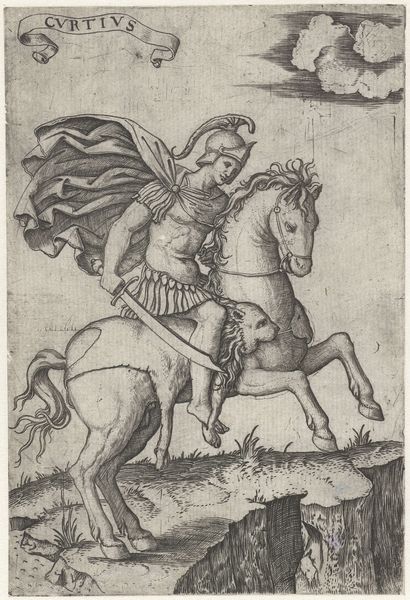
Emperor Vespasian on Horseback, from the series The First Twelve Roman Caesars, plate 10 1596
0:00
0:00
drawing, print, engraving
#
portrait
#
drawing
# print
#
form
#
horse
#
history-painting
#
italian-renaissance
#
engraving
#
erotic-art
Dimensions: sheet: 13 3/4 x 20 1/2 in. (35 x 52 cm) plate: 11 7/8 x 9 1/16 in. (30.2 x 23 cm)
Copyright: Public Domain
Editor: This is "Emperor Vespasian on Horseback," an engraving by Antonio Tempesta from 1596. I'm struck by how much detail he manages to capture in the textures of the horse's mane and Vespasian's armor, using only lines. How would you approach an interpretation of this work? Curator: We can focus on the formal qualities of this engraving. Observe how Tempesta uses line and shading to create a sense of depth and volume. Note the figure of Vespasian: how the arrangement of his cloak billows behind, contrasting with the stoic profile of the man. How do you feel this adds dynamism? Editor: The cape makes it feel grand and regal, the contrast of flow with that face feels somewhat conflicting though? Is he going to war, or merely making a fashion statement? Curator: The interplay of light and shadow are crucial. Consider the engraver's skill in using hatching and cross-hatching to modulate tone and define form, which guides our eyes to move smoothly from the bottom of the cape to Vespasian, then to the face, back down to the torso and then off to the horse's body. Do you see how this directional quality helps define his dominance and create this idealic image? Editor: Now that you mention it, I see it! It seems Tempesta has indeed employed semiotics, constructing a symbol of the idealic. So, looking closely at these techniques reveals the intent. Thank you. Curator: Indeed. By appreciating how Tempesta utilizes space, contrast, and line, we understand the complex dialogue between historical representation, power, and aesthetic artistry, the interplay giving dimension to Vespasian. Editor: Thank you; I see so many more nuances to his technique, especially the importance of light in shaping the horse's form.
Comments
No comments
Be the first to comment and join the conversation on the ultimate creative platform.
